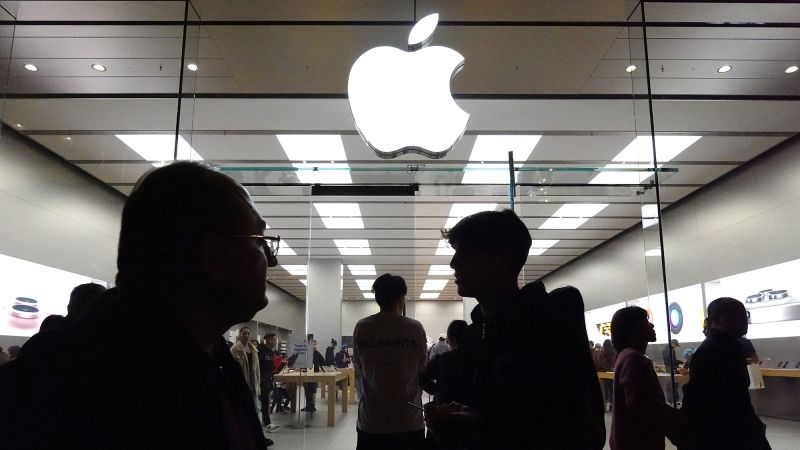Apple stock fell on the first trading day of the year, weighing down the US stock market and snarling Big Tech’s gangbusters 2023 rally.
Shares of the iPhone maker sank 3% on Tuesday after Barclays downgraded the stock to an “underweight” rating from “equal weight,” citing disappointing iPhone 15 sales particularly in China.
Barclays also trimmed its price target to $160 from $161.
“We are still picking up weakness on iPhone volumes and mix, as well as a lack of bounce-back in Macs, iPads and wearables,” analysts wrote in a note. “The continued period of weak results coupled with multiple expansion is not sustainable.”
Analysts at investment banks and brokerages don’t often issue “sell” or “underperform” stock ratings, much less for companies as prominent as Apple, which has a market cap of nearly $3 trillion. (In June, Apple became the first company to close at the $3 trillion mark, making it the largest firm in the world by market capitalization.)
A research paper published in the Journal of Accounting, Auditing and Finance last August found that such calls made up only 9% of all recommendations on average, compared to “strong buy” and “buy,” which represent 46% of ratings.
The slide in Apple shares dragged down the S&P 500 and Nasdaq Composite indexes, which fell by 0.4% and 1.3%, respectively. The blue-chip Dow Jones Industrial Average ticked up 0.2%, reversing earlier losses.
Apple shares surged 48% last year, part of the “Magnificent Seven” mega-cap tech stocks whose returns powered much of the S&P 500’s gains in 2023.
Looking ahead to this year, however, some investors expect the rally could broaden as optimism grows on Wall Street that the Federal Reserve could begin cutting interest rates, and investors turn their attention to stocks that could perform well if the economy reaccelerates.
That could lead to some declines in big tech names, as investors shuffle cash out of such holdings and into other parts of their portfolio.
“These stocks could be used as a source of funds if a hard landing is avoided and leadership broadens beyond secular growth stocks,” wrote Savita Subramanian, head of US equity and quantitative strategy at Bank of America in a December 29 note.
Read the full article here













Leave a Reply